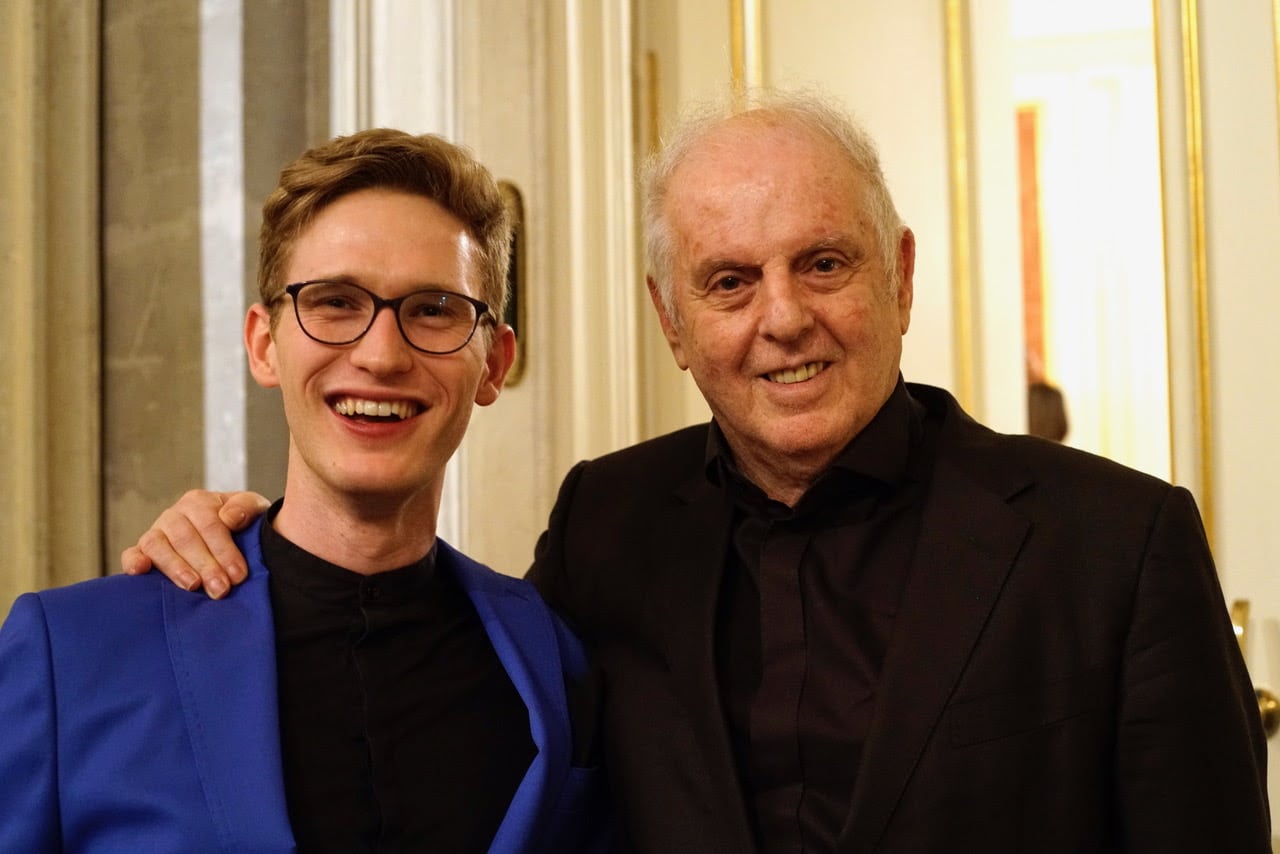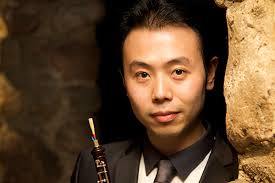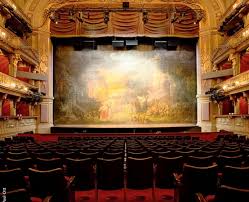After Barenboim, Berlin weighs two options
NewsEarlier this season, when Daniel Barenboim withdrew from a Staatsoper Ring and a Staatskapelle Asia tour, he appealed to christian Thielemann to replace him. The German obliged with all due sympathy and efficiency.
Thielemann, 63, has been regarded ever since as Barenboim’s heir apparent.
But the path is not as smooth as it appears. The choice is in the hands of two opera chiefs, the outgoing Matthias Schulz and the incoming Elisabeth Sobotka, who arrives from the relative backwater of the Bregenz Festival. She has met Thielemann only once, and briefly. But they have spoken on the phone after news of his departure in 2024 from the Dresden Staatskapelle made Thielemann once more a free agent.
Thielemann has emphasized that he talked to Barenboim every day during the Ring preparations and they remain in close touch. He is the clear favourite to succeed, but there are complications. Thielemann is now in global demand. Chicago want him to head their symphony orchestra and there have been further overtures from the US. He knows Berlin well, too well, having led the Deutsche Oper on the west side of the city. Familiarity can be an impediment.
There is also a rival. Barenboim has made no secret of his esteem for Thomas Guggeis, his junior conductor. Guggeis, 29, is now heading to Frankfurt Oper, but that move could still be derailed. Some see Thielemann as a blast from the past, Guggeis as the light of the future.
Watch this space.






Can we please stop this nonsense that Elisabeth Sobotka is inexperienced? She was for many years at the Staatsoper Berlin in the KBB and went from there to the Wiener Staatsoper. She is vastly experienced.
No she went from Vienna (coming there from Leipzig) to Berlin and then to Graz, but in fact she is one of the most experienced people in the business
Can we please stop using unfamiliar abbreviations without expanding them? What is the KBB?
Künstlerisches Betriebsbüro
lol
https://www.youtube.com/watch?v=rEErCqhrBqU
that’s really not good (enough). No music making.
I don’t think he is even seriously considered.
The young and excellent Thomas Guggeis is the way to go.
“Guggeis as the light of the future.”
A bit too light … weight.
Guggeis is 29 and not much accomplishment.
Barenboim was 50 when he took the helm at Berlin, after already a full career, notably as head of Chicago.
Thielemann at 63, having headed Bayreuth, is much closer to Barenboim’s profile.
Thielemann is impressive because his Wagner, for example, continues to evolve and astound. Many conductors his age have settled in their interpretive habits and comfort zone and will coast the rest of their careers on that.
(Barenboim is one such person, I hate to say. His Beethoven today is the same Beethoven at 50.) What Barenboim excels at, which Thielemann does not, is schmoozing with politicians and raising ginomous amounts of state money. Surprisingly good at, consider that is the reason why he quit Chicago, because of his distaste for schmoozing with board members.
So if fund raising is the Berlin Staatoper’s primary concern, then neither Guggeis nor Thielemann is the obvious choice. But if superlative music making of the core Austro-Germanic repertoire is their objective, there is no better proven figure than Thielemann.
Guggeis would be a very poor choice for Berlin at this time. He is talented but completely not ready for these major GMD jobs. He doesn’t display sufficient control or vision of tempo and musical flow, which was clear in the recent Ring. Even for Frankfurt he was a premature choice, but he has a powerful agency and clearly politics are involved in these choices. Wait for 10 years and let him mature. Stop the political insider appointments and go for the real quality. Thielemann or someone with similar qualities and experience for Berlin.
Supporting your argument
https://www.youtube.com/watch?v=cll9JaOum6w
although I’m yet to detect the talent.
Guggeis is really too green for that task at this time.
Thielemann could do the same Chicago-Berlin double that Barenboim did for 15 years. Though Barenboim was a much younger man when he did it and Thielemann might not want to do all that travel.
Thielemann surely won’t combine Chicago and Staatsoper Berlin. By the way, not sure Thielemann is thrilled by the CSO’s clinical sound…
Thielemann seems to disagree with your estimation of the Chicago sound:
“They have a wonderful sound!” Thielemann said of the Chicago Symphony, eyes wide as saucers. “And they are very fast. I just wanted to make, you know, the first rehearsal is about making contact, but working on certain details so that they know: is he more of a rhythmical guy, or he wants us to play free, or he doesn’t want too much vibrato, and so on. And then one sees how the chemistry works. I’m a big fan of chemistry and of not talking too much to an orchestra. It’s better to show it with your hands. You have to show it your own way. And they have to know me and I have to know them. The first contact is always very interesting, ja?”
https://music.newcity.com/2022/10/21/remarkable-return-a-conversation-with-maestro-christian-thielemann-upon-his-return-to-chicago-after-more-than-twenty-years/
“Seems”…
Yeah. Sure, you, random person on the internet hiding behind the alias of an Italian actor, you of all people know better what CT *really* thinks!
I went to most CSO concerts this season, and the Thielemann Bruckner 8 was one you could call ‘orchestra playing the hearts and souls out of themselves’. But I also agree that there’re evenings when the orchestra sounds ‘clinical’ (if not even halfhearted and just cruising thorough the music)
I highly doubt that Thielemann’s “global demand” would hinder him taking the job in Berlin. The bigger question is if Berlin wants a GMD that has left all posts he’s ever had in varying degrees of conflict. Especially after the troubles they’ve had with Barenboim over the years and the public declarations of support they needed to make, I’m sure they wouldn’t mind someone less controversial. Also keep in mind, that Berlin has had left/green governments for a long time now.
I don’t think anyone considers Guggeis a serious contender. In a town where you have to compete with two other opera houses (one with admittedly worse music but much better stagings and innovative concepts, the other one with generally not as good conductors but oftentimes at least the same star singers) plus half a dozen full-time symphonic orchestras, whose chief conductors include names such as Petrenko, Jurowski and Mallwitz, any name needs to pull a certain weight. The Staatsoper needs to defend its position in the city, both as an opera house as well as an own-standing orchestra.
Among the obvious other choices would be Rattle, who lives in the city, is well-connected and regularly conducts at the house. Welser-Möst has cancelled pretty much all Berlin appearances in recent years. Pappano just got a new job. Perhaps Jordan? Even though he said he doesn’t want to do as much opera in the future, maybe a good offer from Berlin may change his mind.
Rattle is an average opera conductor who doesn’t know much about voices.
He certainly isn’t my favourite opera conductor by a mile either, but they can get great guest conductors as well. It’s not just about that in a city as competitive as Berlin. Think of Barenboim what you will, but he certainly threw his weight behind things when needed and the politicians caved. He saved the Staatsoper and its orchestra in its stand-alone form more than once.
Berlin is a perpetually poor city. Their whole budget gets subsidised by the richer German states like Bavaria – something those richer states are trying very hard to get rid off. If that happens, Berlin will need to make drastic changes to their budget. The three opera houses together get about a quarter of a billion in subsidies every year from the state of Berlin. So the question of whether the city really needs three opera houses and half a dozen full-time orchestras will probably come up sooner rather than later – and that’s when you need a big name to head your house because people will listen to them.
Very true. Barenboim was/is a well connected smart culture politician. Thielemann has a bit of a bad reputation there.
But in the end I doubt the Senate would not accept what the house wants, if they actually DO find a mutually agreed top candidate between orchestra and Intendanz.
But you are right, to save the institution against political budget cutting pressure, it MUST be an established top contender with special affinity for house and city, not an emerging lightweight, or a much absent jetsetting minded “outsider”.
I agree with both your points. If both orchestra and Intendanz want Thielemann, the Kultursenator probably won’t stop it. If there is uncertainty within those circles, the politicians might sway away from him due to the above mentioned reasons.
We also don’t know yet who will be in charge as Kultursenator when a successor to Barenboim in named. The re-election for state parliament takes place in February and I doubt that the decision will be made in the next four weeks.
In any case it will be interesting to see how the Lindenoper develops over the next few years. Just my personal opinion, but I am under the impression that other orchestras in the city have been better at carving out a role for themselves in recent years. The state opera still profits from its name but there have been a lot of lacklustre performances in recent years (and I don’t just mean the stagings).
Sir Simon could be an interesting choice if having two jobs in Germany isn’t a problem. But without any inside knowledge, I would imagine he likes doing some opera but doesn’t necessarily want to run a house.
Probably the latter, even though it must sound very tempting getting to sleep at home much more.
Also Munich seems to have back paddled on the new concert hall. It’s a big village down there after all. Lots of money, but deep in their simple minds the csu Spezis like to spend it better on more populist causes than classical music.
SSR could use Berlin asking as a bit of leverage to remind the Bavarians of their original promise when signed for the BRSO chief position.
Who told you that Thielemann left ALL his positions in conflict?
That’s certainly not true.
Or did you repeat what some newspapers wrote?
Oh well, let’s say – most of his positions.
Get Sebastian Weigle in for 5-10 years until TG is ready. A complete no-brainer.
Let’s be serious…
Guggeis would never be accepted by the Staatskapelle. They have suffered too much through his inexperience already. He’s a talented pianist with promise, but has been given too much too early. He’s become more of a traffic cop than a conductor, as they are surprised to find out wherever he guests.
There was a direct comparison recently to be made, between the two of them, when Thielemann conduced the first and third cycles of the Ring at the State Opera, and Guggeis the second.